A Bluetooth speaker often sounds bad due to issues like a weak wireless connection, outdated audio codecs, low battery, or simple hardware limits. For example, heavy interference or being too far from the source can cause choppy, distorted audioelectrotecaudio.com support.apple.com. Likewise, using a low-quality Bluetooth codec or having an older device can degrade sound clarityThe sections below explain the common causes and fixes in detail.
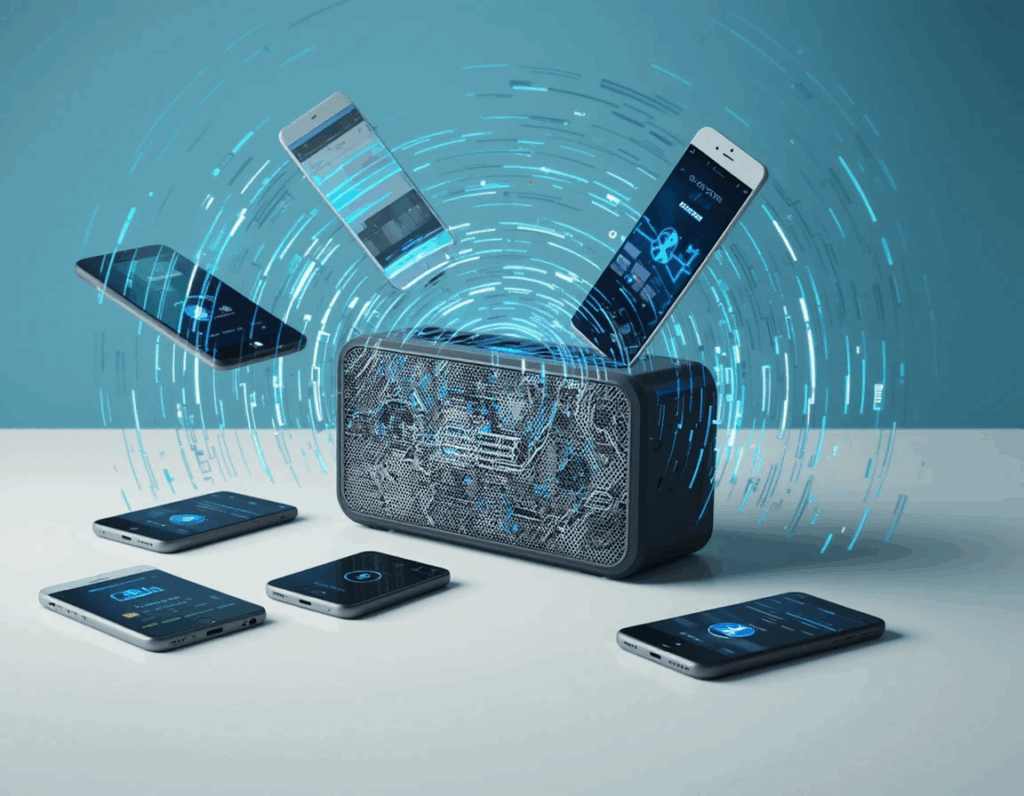
Common Causes of Poor Bluetooth Speaker Audio
- Weak Bluetooth Connection: Bluetooth needs a strong, stable link. If you’re far from the device or obstacles block the signal, the music may sound distorted or start cutting outelectrotecaudio.comsupport.apple.com. Wireless interference from Wi-Fi routers, microwaves, or even crowded Bluetooth channels can also make sound cracklesupport.apple.com. In practice, keep the speaker and phone close (within ~10 meters) and clear of walls to avoid dropoutselectrotecaudio.comsupport.apple.com.
- Audio Codec Limitations: By default, Bluetooth uses a basic codec (SBC) that compresses music to fit the limited bandwidthbowerswilkins.com. This lossy compression can make audio sound less detailed or “muffled”. Newer codecs like aptX or AAC (available on many modern devices) allow much higher quality (up to CD quality)bowerswilkins.com. If your phone and speaker both support these, using them can improve clarity. Otherwise, expect some audio loss from Bluetooth’s compression.
- Hands-Free Mode (Microphone Active): Bluetooth has two modes – a high-fidelity mode for listening and a low-quality mode when the mic is in usesupport.apple.com. If an app uses the speaker’s microphone (like a voice call or recording), the speaker may switch to the low-quality mode. In that mode, audio “quality is reduced” and may sound quiet or distortedsupport.apple.com. Make sure your speaker is in listening mode (and close any apps using its mic) to avoid this issue.
- Low Battery or Power Saving: When a speaker’s battery is low, it may reduce performance. A dying battery can lead to lower volume, loss of bass, or sudden dropouts at high volume. For example, some devices briefly pause sound to “warn” of low battery. Charging the speaker fully often restores normal audio quality and volume.
Reasons Why Your Bluetooth Speaker Has Poor Sound Read More –>
- Hardware or Speaker Quality: Not all speakers are built alike. Cheap or tiny Bluetooth speakers often have small drivers and minimal bass. The sound might be “tinny” or lack richness simply because of the design. Experts note that factors like the speaker’s cabinet, the size and number of drivers, and overall build affect audio qualityelectrotecaudio.com. If a speaker only has a single small woofer or a poor enclosure, it will sound worse than higher-end models.
- Source or App Issues: Sometimes the problem is the audio source. A low-bitrate music file or a weak internet stream can sound bad even before it reaches the speaker. Also, outdated phone firmware or a buggy music app can cause Bluetooth glitches. Try using a different music app or update your device’s software if audio cuts or stutters without other cause.
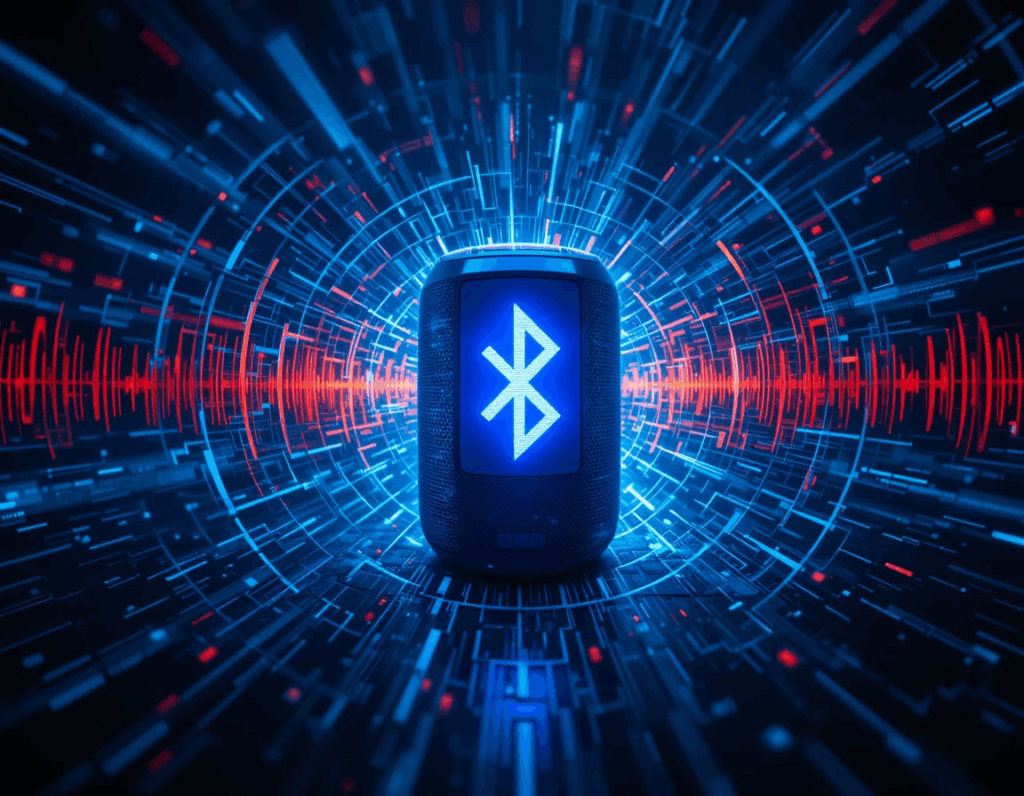
How to Fix Bluetooth Speaker Sound Quality
If your Bluetooth speaker’s sound is poor, try these troubleshooting steps:
- Move Closer & Remove Obstacles: Bring the speaker and source device nearer. Walls, floors, or even your body can weaken the signal. For best sound, stay within 10-15 feet (3-5 meters) and avoid obstacleselectrotecaudio.com. Also, turn off other devices that may cause interference (like Wi-Fi routers or microwaves) to improve the connectionsupport.apple.com.
- Charge and Update: Plug in and fully charge your speaker. A full battery often restores volume and bass. Next, check for firmware updates on your phone and speaker. Updating Bluetooth drivers or the speaker’s firmware can fix known audio bugs and enable better codecs.
- Check Bluetooth Mode: On your phone or computer, go to the Bluetooth settings for the speaker. Ensure the active profile is the high-quality audio mode (A2DP) and not the headset hands-free mode. On Windows PCs, for example, you may see two audio devices; choose the one labeled “Stereo” or “Headphones” (not “Hands-Free”)support.apple.com.
- Use High-Quality Audio: Play a high-quality audio track (like a 320kbps file or lossless music). Also, disable any equalizer or volume boosters on your device that might distort sound. If your speaker or app has a volume leveler or “loudness” feature, turn it off to hear true audio quality.
- Adjust Speaker Settings: If your speaker app has EQ settings (like extra bass or stereo wideness), tweak them. Sometimes reducing a heavy bass boost or enabling a “flat” sound mode helps if the default is too bass-heavy or boomy.
- Reset and Re-pair: Unpair the speaker from your device and pair it again. A fresh Bluetooth pairing can sometimes clear glitches. If your speaker has a reset button or sequence, try resetting it as well.
- Try a Wired Connection (If Possible): If sound is still bad, consider using an AUX or optical cable if your speaker and source support it. Wired audio bypasses Bluetooth compression completely and often sounds cleaner, especially for low-end or studio-quality music.
- Upgrade If Necessary: If nothing improves, the speaker’s hardware might be the limit. Consider upgrading to a higher-quality Bluetooth speaker that supports modern codecs and has larger drivers for fuller sound.
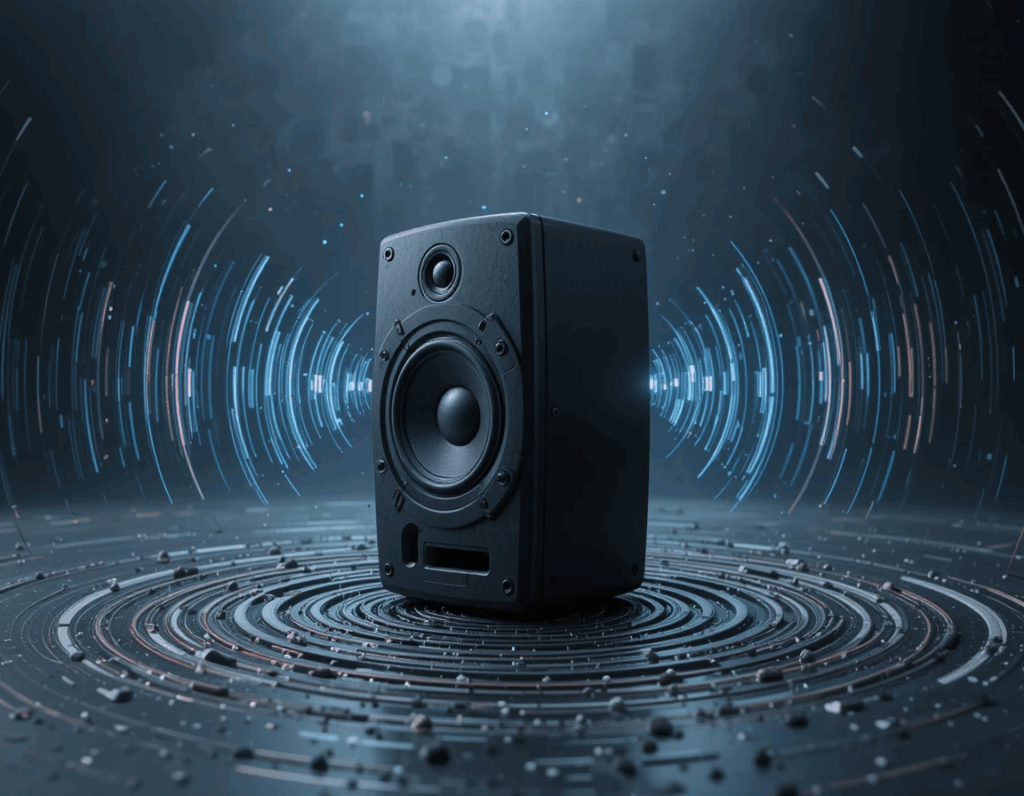
Frequently Asked Questions
- Q: Why does my Bluetooth speaker sound muffled or tinny?
A: Muffled sound usually means the speaker is underpowered (too far or low battery) or has a small driver. Try charging it and moving closer. Some cheap speakers have limited bass by design. Playing a high-quality audio file and adjusting the EQ (reducing bass boost) can also help. - Q: How can I stop static or crackling in my Bluetooth speaker?
A: Static often comes from wireless interference or weak signal. Move away from other electronics (Wi-Fi, microwaves) and get closer to the speaker. Also, check if the speaker’s battery is low – charging it can eliminate distortion. Sometimes simply re-pairing the Bluetooth connection fixes crackle. - Q: Is it normal for Bluetooth audio to sound worse than headphones or wired output?
A: Bluetooth can be very good, but it is still compressed and wireless. In many cases, casual listeners won’t notice a difference, but purists will. If you want absolute top quality, a wired connection is best. However, a modern speaker with aptX, AAC, or LDAC support can sound nearly as good as wired under ideal conditionsbowerswilkins.com. - Q: Can multiple Bluetooth devices affect sound quality?
A: Yes. If you have several Bluetooth devices active (like a smartwatch, speaker, mouse, etc.), they all share the same wireless band. Disconnect any devices not in use to free up bandwidth. Also avoid pairing multiple speakers at once unless the speaker specifically supports it. - Q: Why does using the speaker’s microphone lower sound quality?
A: When the microphone is active (for calls or voice commands), Bluetooth switches to a headset mode that compresses audio heavilysupport.apple.com. This mode prioritizes two-way voice data and sacrifices music fidelity. If sound quality drops during calls, that’s why. Disable the mic or end the call to return to high-quality audio mode.
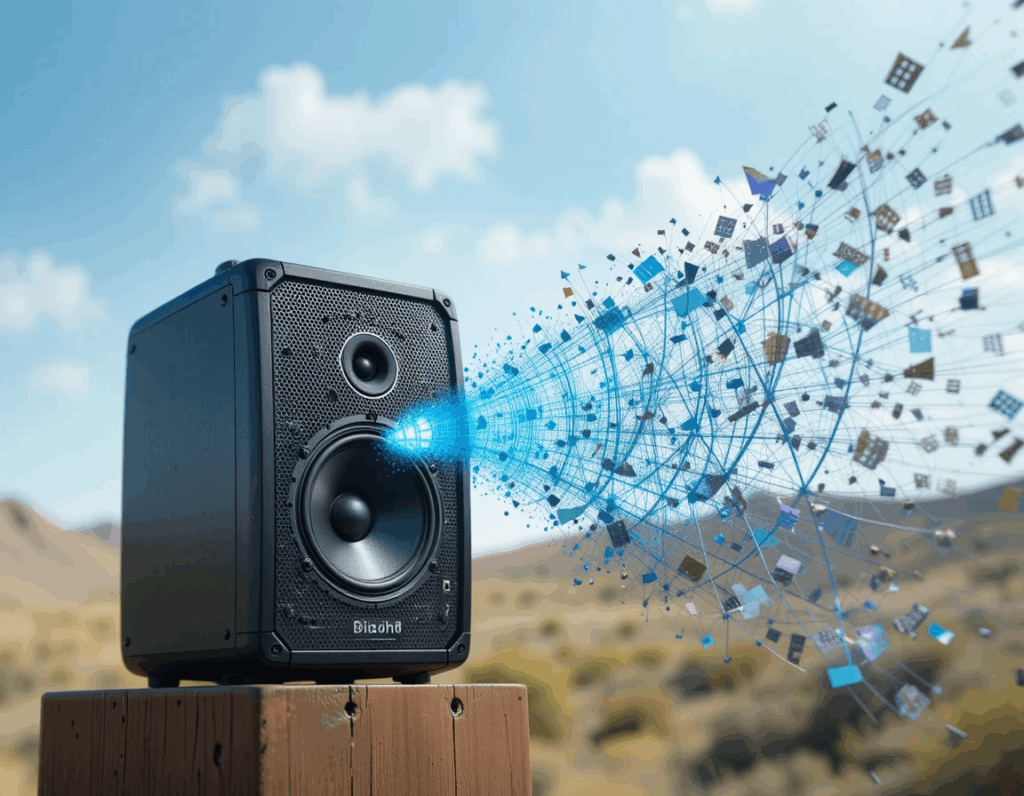
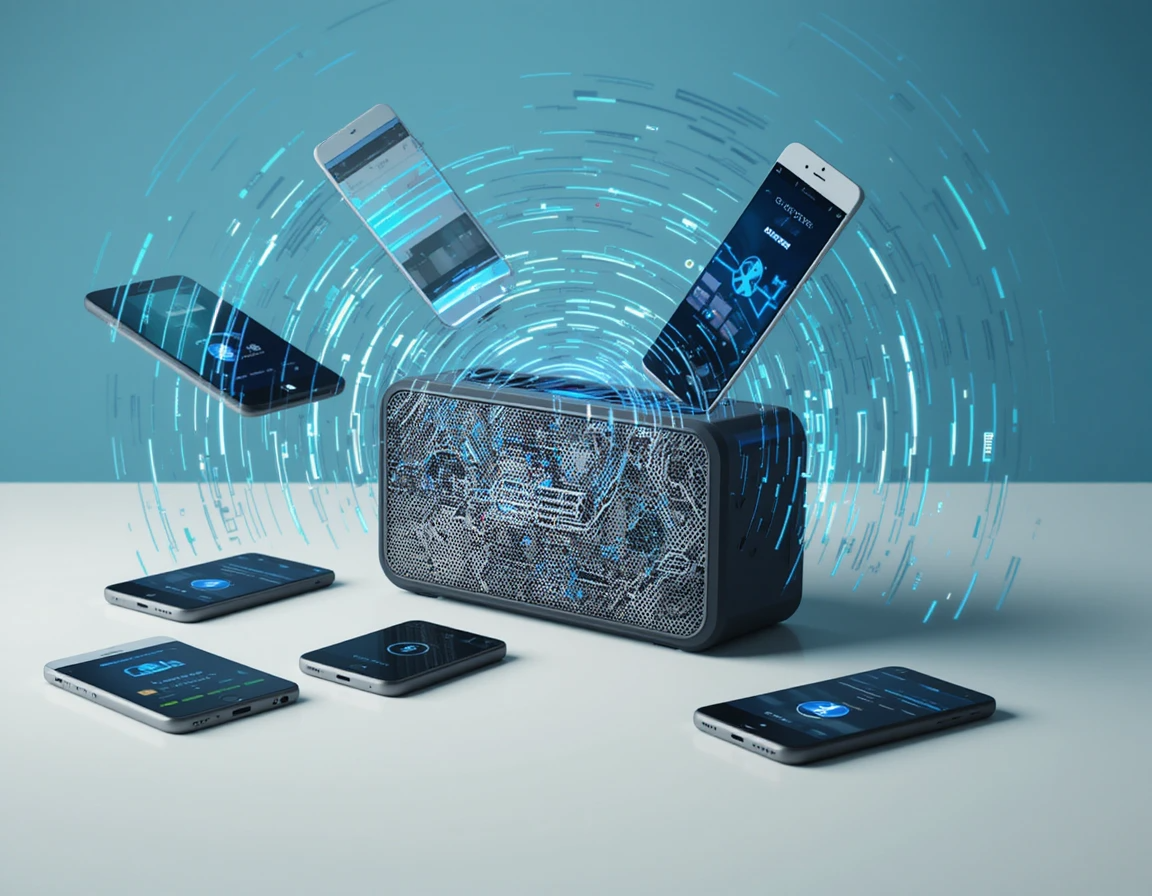
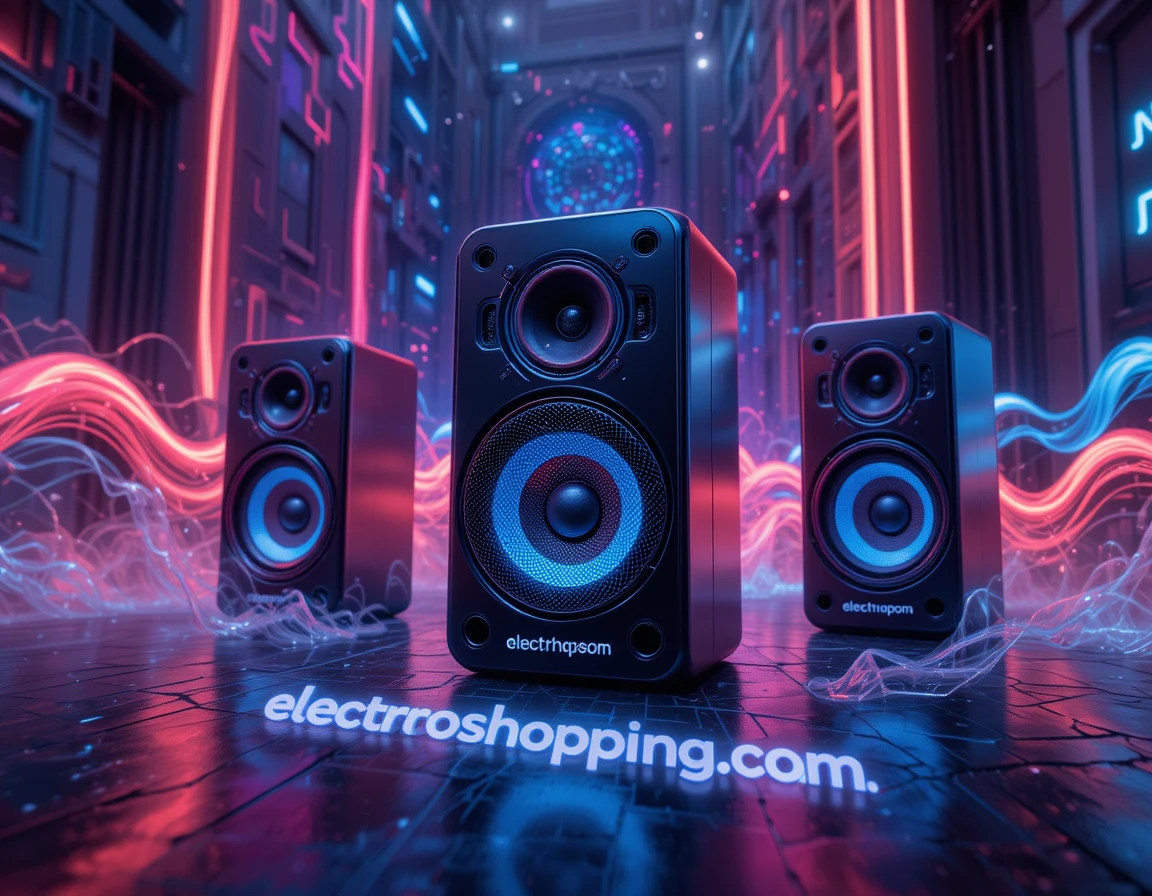
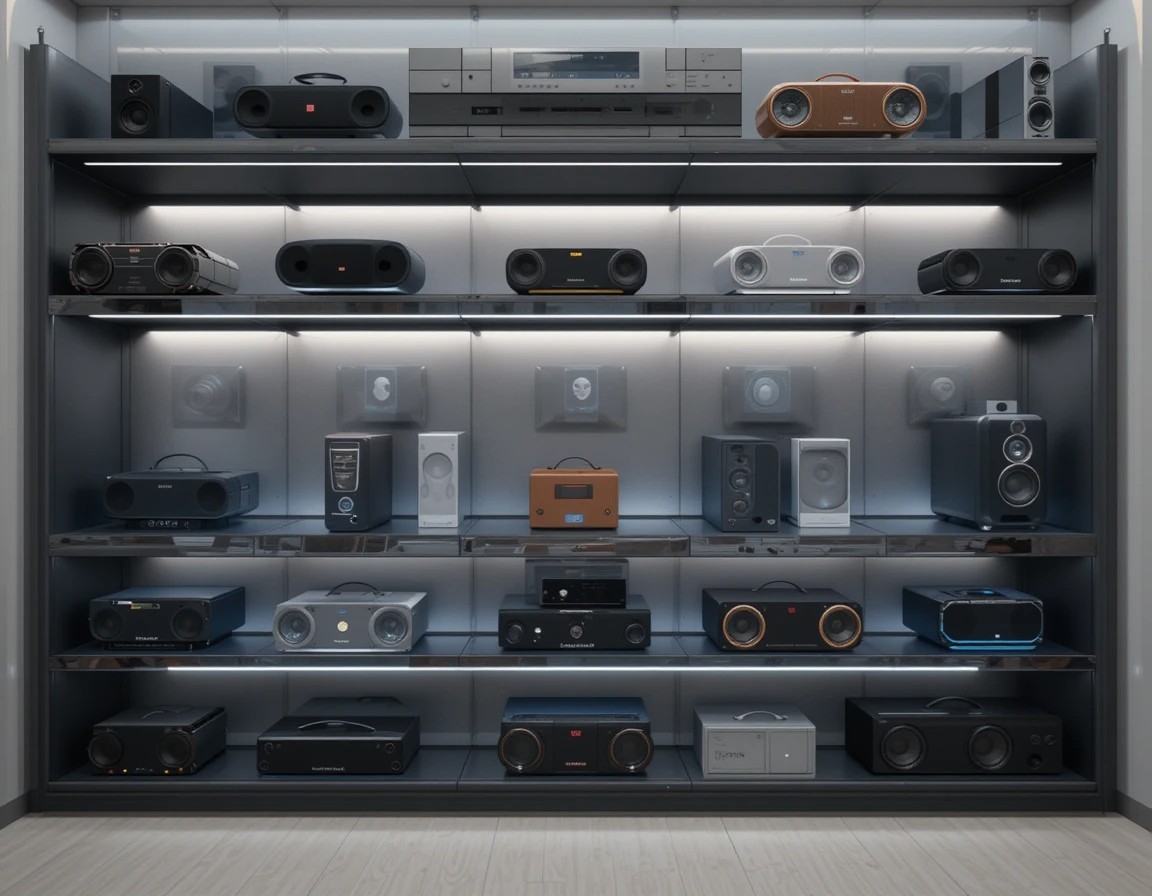
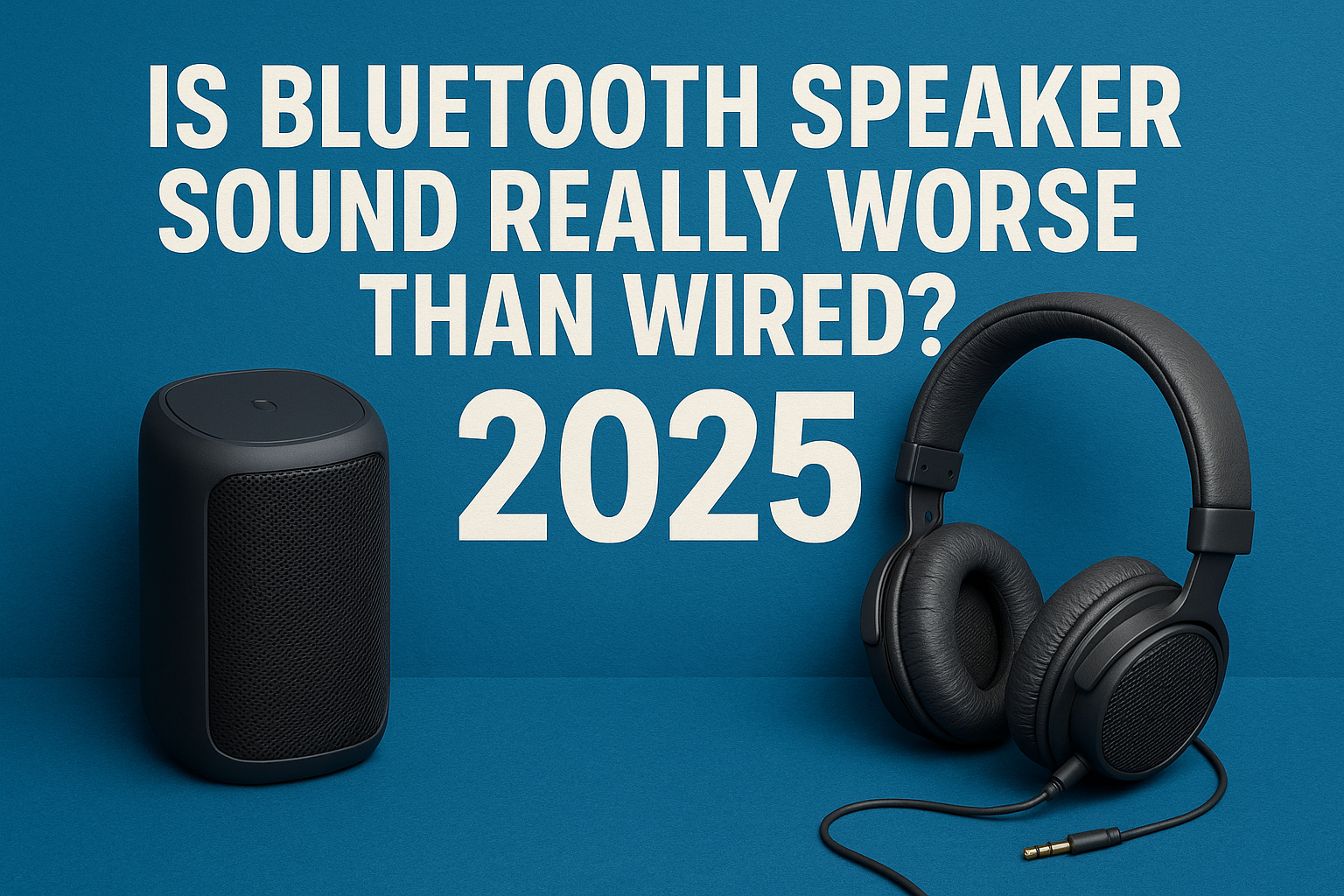

One thought on “Why does my Bluetooth speaker have bad sound quality? 2025”